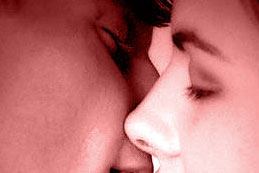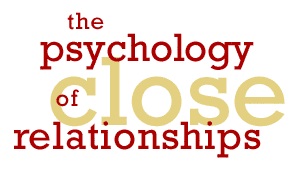  |
  |
 Dr. Art Aron
|
 Dr. Art Aron is Associate Professor of Psychology at the State University of New York at Stony Brook. He received his doctoral degree from the University of Toronto in 1970, and is the author or co-author of several books and dozens of scholarly articles on such topics as love, motivation, prejudice and emotional sensitivity. Here we discuss his work on love as "self-expansion." You have spent much of your career studying the experience of love. How would you define romantic "love"? Love is the desire to enter and maintain a close relationship with a specific other person. In a "close relationship," you include the other person in yourself. This means that you experience that person's social life, possessions, resources, points of view and identity as if they were your own. For me, it all boils down to saying that love is the desire to include this specific person within oneself. Many of us distinguish between love and lust, or between being "in love" and being "just friends." How can a person tell if he or she is "really" in love? I'm not sure what it means to be "really" in love. This kind of language implies that some experiences of love are not "real" in some way. I doubt that anyone can or would make such a distinction while experiencing such intense feelings. Instead, it's more that we'd revise our judgment later. People often seem to say a love was "not real" only after the fact, if it didn't work out! In any case, the signs indicating that you are "in love" include experiencing a strong desire to be in a close relationship with the other person. This is different from merely enjoying the view or longing for sex. "In love" relationships are distinct from other expressions of romantic love because they are highly intense and relatively exclusive . That is, they affect much of what a person feels, thinks and does. And they don't extend to admit outsiders or newcomers, the way that friendships generally do. Put another way, you may love many different people but you are usually in love with only one or perhaps a very few persons. In your writing, you describe love as a process of "self-expansion." Can you say more about what that involves? What are the signs of self-expansion and is it good for you? Is it a healthy, desirable process? The process of self-expansion is about the desire to increase your ability to accomplish whatever you desire in life. That is, you "expand" the self whenever you increase the resources that allow you to accomplish your goals. Resources include knowledge, status, wealth, skills, self-confidence and so on. For example, a person in love ought to feel better about herself -- happier, stronger and more capable. People in love say they are "on top of the world," that they feel like they are "walking on air." They promise their lovers that, "with you by my side, I can do anything." These aren't just fantasies; these feelings usually reflect real improvements and reinforcements within one's life. Of course, to be better, you can't just "feel" better. You also need to work hard and use the resources that self-expansion offers. But with that beloved partner, many goals really are easier to accomplish. You're no longer alone or unknown, and this brings strength and freedom. Is self-expansion healthy? My colleagues and I think that self-expansion is a fundamental human motivation, like the desire to survive. We don't just enjoy it -- we need it. Without any self-expansion, we experience boredom, a failure to engage with life. At the other extreme, when you experience rapid self-expansion, it feels wonderful -- exhilarating, joyous. But excessive focus on self-expansion can be distracting, even obsessive. If you expand in only one domain but don't pay attention to other domains in life, you can certainly undermine your general physical and mental health. What happens when we make mistakes in love and self-expansion, such as falling for Mr. or Ms. Wrong? It is possible to love someone who you believe will expand your self if you had a relationship but who, in reality, cannot offer self-expansion. Some people are too self-absorbed to make their lives or resources available to others. Some attractive others just take and take without giving. If you aim badly, your wish for self-expansion -- your offering of love -- will only produce a relationship that is boring, hurtful or stifling. How might a lovelorn or lonely person increase the chances of experiencing self-expansive love? From our perspective, all love is self-expansive love. You experience it when you come to believe that a particular other person offers you dramatic opportunities to expand yourself, the realization that forming a relationship with that person will be wonderful and make your life "perfect" and full. Of course, this realization is partly an illusion. Real life cannot be truly "perfect" and no other person can "make" it so. But self-expansive feelings rely a little bit on illusions and idealistic expectations. You cannot make yourself experience an illusion. But you can think about what it would take -- what kinds of qualities and experiences -- to make your life better. For example, think about your unique goals, what you desire in life, what would make you more the person you hope to be. Once you have those ideas in mind, look around, try to really see what others are like. Don't reject others just because they don't look or act like the sorts of persons you usually find attractive on the surface. Think in terms of your possible self, not just your momentary mood. Try to be open to discovering that other people can offer some (probably not all) of those opportunities. The best partner for self-expansion will be a person who is different from you in an important way, who can help you in ways you cannot help yourself. This difference makes life interesting and completes the relationship. Look around, be aware of the presence of many different kinds of potential partners in your world. Next, once you have found such a person, show him or her that you have much to offer in return, that you can help him or her to experience self-expansion as well. With this beginning, you forge mutual attraction and two-sided self-expansion. In other words, you fall in love with each other -- truly the experience of a lifetime. |